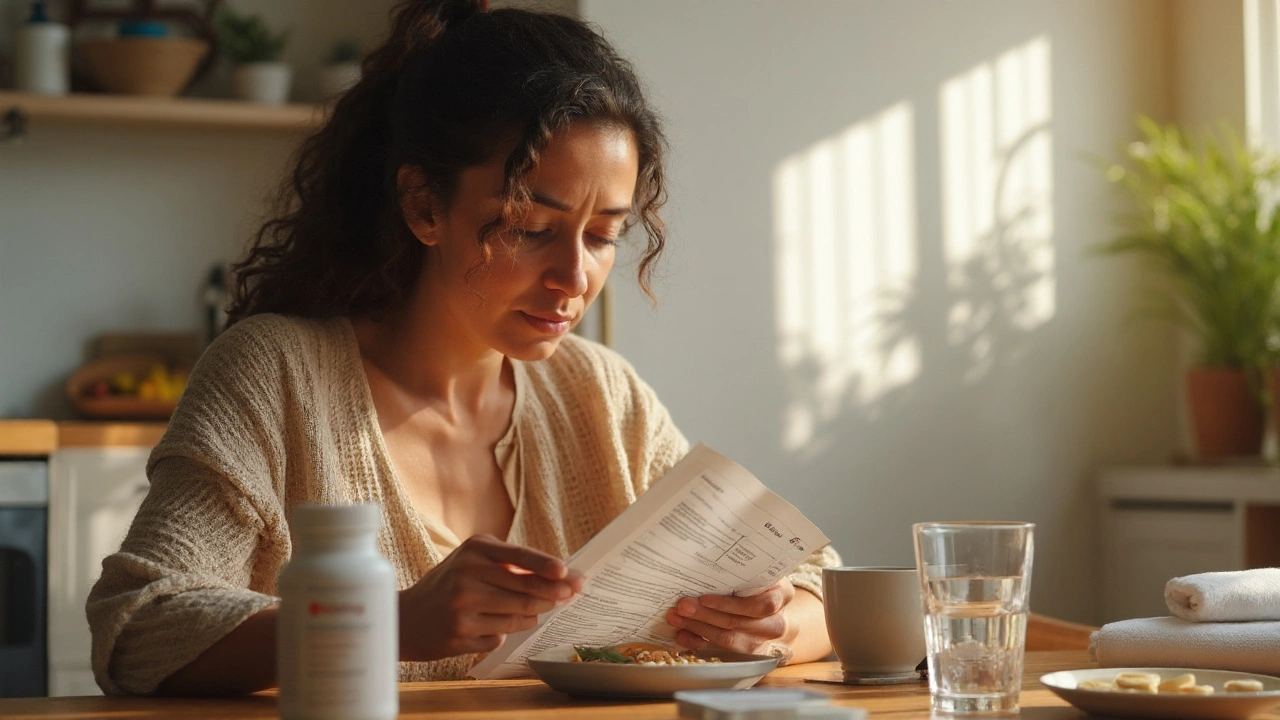
Colospa (Mebeverine) Uses, Dosage, Side Effects, and Availability in 2025
Clear guide to Colospa (mebeverine): what it treats, how to take it, side effects, and where it’s available in 2025. Practical tips for IBS cramps and gut spasms.
If you’ve been battling bloating, cramping, or unpredictable bathroom trips, you’re not alone. Irritable bowel syndrome (IBS) affects millions, but the good news is there are several ways to calm the gut without spending years in trial‑and‑error.
The first step is figuring out what’s triggering your symptoms. Keep a simple food diary for a week: note everything you eat, the time you eat it, and any gut reactions. You’ll often spot patterns, like a flare after coffee, dairy, or high‑FODMAP foods. Once you see the culprit, you can start tweaking your diet.
Low‑FODMAP diet: This isn’t a fad; it’s a science‑backed approach that cuts out short‑chain carbs that ferment in the gut. Start with a five‑day elimination phase, then slowly re‑introduce foods to see what you tolerate.
Fiber boost: Soluble fiber (like psyllium husk) can smooth out stool consistency. Add a tablespoon to your morning smoothie or sprinkle it on oatmeal. Avoid large amounts of insoluble fiber if it makes you gassy.
Probiotics: Certain strains, especially Bifidobacterium infantis, have shown promise in easing IBS symptoms. Look for a supplement that lists the exact strain and CFU count.
Over‑the‑counter relief: Antispasmodics (e.g., hyoscine butylbromide) can relax gut muscles during a cramp. Laxatives help constipation‑dominant IBS, while loperamide can calm diarrhea‑dominant cases. Use them short‑term and follow the label.
Prescription options: If OTC tools don’t cut it, doctors may prescribe rifaximin for bloating, linaclotide for constipation, or alosetron for severe diarrhea. These meds target specific IBS types, so a proper diagnosis matters.
Sudden weight loss, blood in stool, or severe pain that doesn’t improve with home tricks should trigger a doctor visit right away. A gastroenterologist can run tests to rule out conditions like celiac disease or inflammatory bowel disease.
During the appointment you’ll likely discuss your symptom diary, get a physical exam, and possibly undergo blood work or a stool sample. If the doctor suspects a bacterial overgrowth, a short course of antibiotics may be recommended.
Beyond meds, many clinics offer gut‑focused therapy. Cognitive‑behavioral therapy (CBT) and gut‑focused hypnosis have helped people reduce stress‑related IBS flare‑ups. If anxiety or depression is part of your picture, addressing it can improve gut health too.
Bottom line: IBS is manageable with the right mix of diet tweaks, safe OTC aids, and professional guidance when needed. Start with a food log, try a low‑FODMAP approach, add soluble fiber, and see how you feel in two weeks. If symptoms linger, reach out to a healthcare provider for targeted treatment. You don’t have to live with constant discomfort—small, consistent steps can bring lasting relief.

Clear guide to Colospa (mebeverine): what it treats, how to take it, side effects, and where it’s available in 2025. Practical tips for IBS cramps and gut spasms.